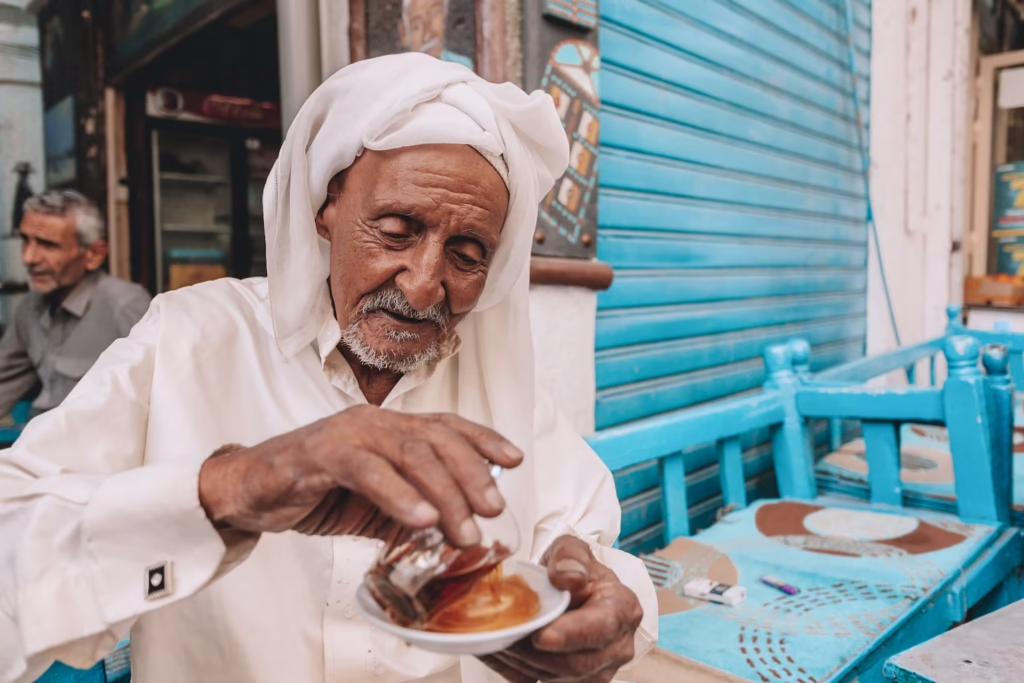Bahrain, the Pearl of the Gulf, is more than its scenic coastlines and glittering skyline — it is a country deeply rooted in heritage, faith, and creative expression. Behind every gesture, fabric, melody, and custom lies centuries of tradition that still shape the modern Bahraini identity. Let’s take a closer look at three beautiful facets of Bahraini culture: traditional dress, culture in motion, and the guiding influence of religion and respect.
In Bahrain, clothing is more than a fashion choice — it’s a reflection of cultural pride and heritage. While modern attire is common, especially among the younger generation, traditional dress remains an essential part of national identity, especially during celebrations and religious occasions.
For men, the traditional attire is the thobe — a long white robe made from cotton or lightweight fabric to suit the hot climate. It’s typically worn with a ghutra or shemagh (headscarf), held in place by a black cord called agal. This look represents simplicity, modesty, and dignity.
Women traditionally wear the abaya, a long black cloak, often paired with a hijab (headscarf). During festive occasions, Bahraini women wear beautifully embroidered dresses known as jalabiya, adorned with vibrant colors, intricate designs, and sometimes gold accessories. The mix of modesty and ornamentation showcases Bahrain’s blend of tradition and artistic flair.
While Western-style clothing is widely worn in public spaces, traditional attire remains a proud symbol of cultural heritage that continues to be passed down through generations.

Islam is deeply woven into the fabric of Bahraini society, shaping values, traditions, and daily life. The call to prayer echoes through city streets five times a day, reminding residents and visitors alike of the spiritual pulse that runs through the island.
Bahrain is unique in the Gulf for its religious diversity within Islam, with both Sunni and Shia communities coexisting with mutual respect. Religious events, such as Eid al-Fitr, Eid al-Adha, and Ashura, are marked by family gatherings, public processions, and charitable acts.
For visitors, showing respect for religious customs is essential. Modest clothing is encouraged, particularly when visiting mosques or during Ramadan, when eating, drinking, or smoking in public during daylight hours is considered disrespectful.
Religion in Bahrain isn’t just practiced — it’s honored, lived, and shared. Whether through architecture like the Al-Fateh Grand Mosque, daily rituals, or acts of generosity, the Islamic faith is a source of guidance and connection in Bahraini life.



